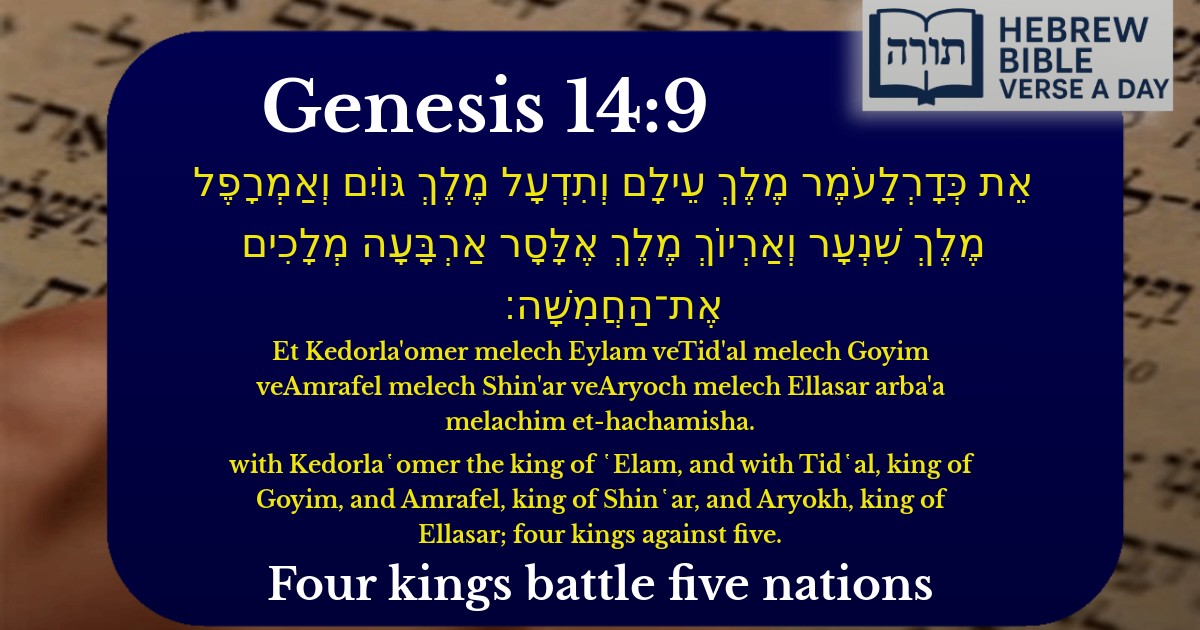Join Our Newsletter To Be Informed When New Videos Are Posted
Join the thousands of fellow Studends who rely on our videos to learn how to read the bible in Hebrew for free!
Hebrew Text
אֵת כְּדָרְלָעֹמֶר מֶלֶךְ עֵילָם וְתִדְעָל מֶלֶךְ גּוֹיִם וְאַמְרָפֶל מֶלֶךְ שִׁנְעָר וְאַרְיוֹךְ מֶלֶךְ אֶלָּסָר אַרְבָּעָה מְלָכִים אֶת־הַחֲמִשָּׁה׃
English Translation
with Kedorla῾omer the king of ῾Elam, and with Tid῾al, king of Goyim, and Amrafel, king of Shin῾ar, and Aryokh, king of Ellasar; four kings against five.
Transliteration
Et Kedorla'omer melech Eylam veTid'al melech Goyim veAmrafel melech Shin'ar veAryoch melech Ellasar arba'a melachim et-hachamisha.
Hebrew Leining Text
אֵ֣ת כְּדׇרְלָעֹ֜מֶר מֶ֣לֶךְ עֵילָ֗ם וְתִדְעָל֙ מֶ֣לֶךְ גּוֹיִ֔ם וְאַמְרָפֶל֙ מֶ֣לֶךְ שִׁנְעָ֔ר וְאַרְי֖וֹךְ מֶ֣לֶךְ אֶלָּסָ֑ר אַרְבָּעָ֥ה מְלָכִ֖ים אֶת־הַחֲמִשָּֽׁה׃


Context of the Verse
This verse (Bereshit 14:9) describes the alliance of four kings who waged war against the five kings of the cities of the plain (Sodom, Gomorrah, Admah, Zeboiim, and Bela). The battle is part of the narrative leading to Avraham Avinu's rescue of his nephew Lot, who was captured during the conflict.
Identification of the Kings
Symbolism of Four Against Five
The battle of four kings against five represents the struggle between opposing forces in the world. The Ramban (Bereshit 14:1) notes that this conflict foreshadows future geopolitical struggles, emphasizing Divine Providence in shaping history. The victory of the four kings over the five demonstrates that military might does not always determine outcomes—Hashem's will is supreme.
Connection to Avraham Avinu
The defeat of the five kings, including the king of Sodom, sets the stage for Avraham's intervention. The Midrash (Pirkei DeRabbi Eliezer 27) teaches that this war was a test for Avraham, allowing him to demonstrate his faith and courage by rescuing Lot. His victory over the four kings (Bereshit 14:14-16) highlights his role as a righteous leader chosen by Hashem.